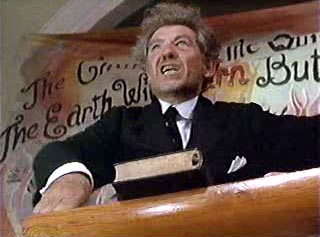As some of you know, I
serve on the board of a Christian center for contemplative prayer,
called Mons Nubifer Sanctus. Mons
Nubifer Sanctus is Latin for “Holy Cloud-Bearing Mountain.” The
name takes its inspiration chiefly from Exodus 24:18, which describes
Moses’ ascent up the Holy Mountain into the cloud of the presence
of God. This account is fulfilled in the New Testament passages
dealing with the Transfiguration of Jesus on Mount Tabor.
These
texts, and others like them, have consistently been read by the great
spiritual masters of the Church in terms of the heights of
contemplative prayer, heights to which all Christians are called in
Christ. Christian spiritual classics such as Dionysius the
Areopagite’s The Mystical Theology,
and the 14th
century anonymous English work The Cloud of Unknowing
all follow in this tradition, as do numerous other writings through
the ages of the Church and up the present day.
The
goal of Mons Nubifer Sanctus is
to provide a retreat and training center where men and women can
cultivate a life of deep and transformative prayer, practiced
in common and grounded in the ancient spirituality and fullness of
the Christian faith. The center’s programs will be geared
specifically for people living and working “in the world;” in
other words, for active people in secular positions who yet seek a
deeper spirituality than most church communities can offer.
The founder and president
of the board, Mr. James Krueger expects be ordained to the Deaconate
in the Episcopal Diocese of Albany shortly, and soon after that to
the priesthood. He has devoted a great deal of time, energy and work
to get us to this point. We have gathered a Board of Directors and
incorporated as a not-for-profit, Mons Nubifer Sanctus and are
currently raising funds to purchase a suitable building and grounds
to be located in the Catskill Mountains of New York State. The
property will be conductive to contemplation, adequate to house
twelve to sixteen participants in dorm-style rooms, have room to grow
if necessary, and have some decent land for sustainable growing.
Donations will also be used to cover other start-up and initial
operating expenses.
I’m writing to you to
ask your help in making this center a reality, a center which will do
its part to reinvigorate an authentic and truly transformative
Christianity in the west, by making a donation to Mons Nubifer
Sanctus. I would not normally be so bold as to ask this, but I am goaded on by a most wonderful opportunity presented
to us by an anonymous donor who will match every donation made from
now until the end of 2013 dollar for dollar up to $50,000! This means
that every dollar you give will be turned into two! Can you help us,
then, to reach our goal of purchasing a suitable property and
beginning programs, however gingerly, in 2014?
Please visit
www.monsnubifer.org for further information, seeing especially our
“Vision and Feasibility” page, and feel free to contact us and
keep in touch as this unfolds. Donations can be made to Mons Nubifer
Sanctus, PO Box 568, Pine Hill, NY 12465. Please also find and follow
us on Facebook!
In Christ, who is our
peace,
Father Paul Hunter.










